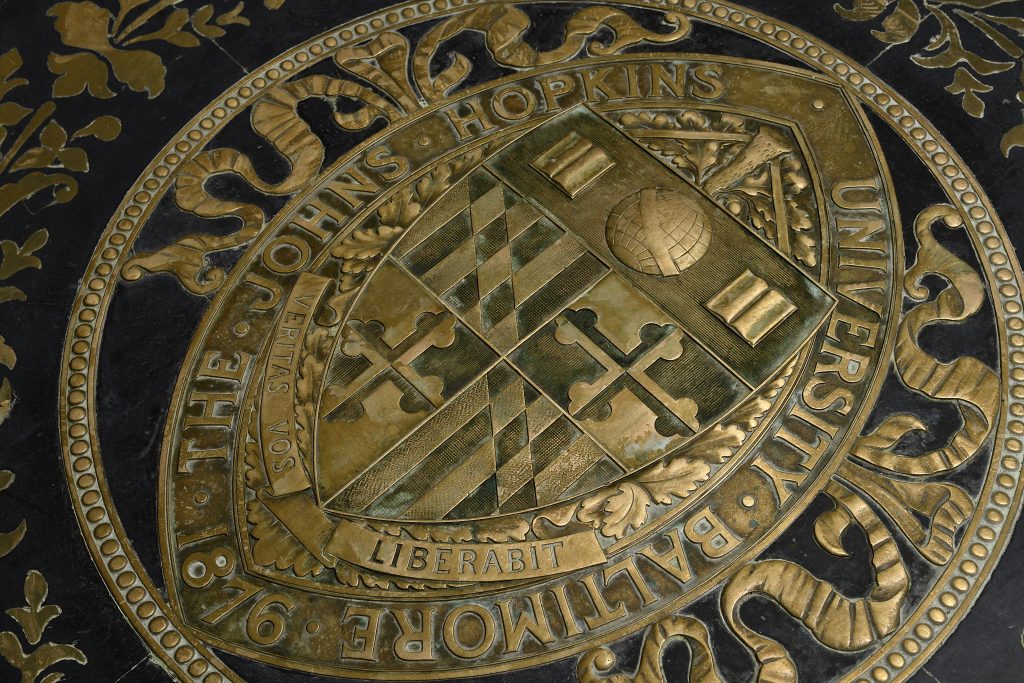INBT Researchers Receive 2024 Catalyst Award

Thirty-five promising early-career faculty members from across the nine academic divisions of Johns Hopkins University have been selected to receive Johns Hopkins Catalyst Awards for 2024, a prestigious recognition reflecting their accomplishments to date, creativity and originality, and academic impact.
Among the 35 are researchers at the Institute for NanoBioTechnology. This includes Jude Phillip, INBT core researcher and assistant professor of biomedical engineering, Sangmoo Jeong, INBT core researcher and assistant professor of chemical and biomolecular engineering, and Josh Doloff, INBT associate researcher and assistant professor of biomedical engineering.
This year’s Catalyst Award recipients are pursuing a wide array of cutting-edge projects, including creating a formal framework for responsible interpretation of large language models, exploring alternative histories of the early alphabet in the ancient Near East, and documenting the evolving structures of farming populations and their implications for global food security.
One awardee is assessing the effects and feasibility of a meaningful activity plan intervention for people with mild cognitive impairment on cognitive, behavioral, and caregiver outcomes. Another is analyzing the mental and physical health impacts of police shooting incidents on U.S. adults through cross-referencing longitudinal surveys and gun violence data. Recipients represent 26 academic departments from across the university.
“From its inception, our university has nurtured early-career faculty whose novel investigations and groundbreaking ideas have changed our understanding of the world,” JHU President Ron Daniels said. “With this year’s Catalyst Awards, we are thrilled to support another 35 remarkable early-stage faculty from disciplines that span the full breadth of our university as they pursue new research and bold discovery that makes a meaningful and lasting impact on society.”
Each honoree will each receive a $75,000 grant to support their work over the next year. They also will have the opportunity to participate in mentoring sessions and events designed to connect them with colleagues at similar stages in their careers.
“The Catalyst Awards exemplify Johns Hopkins’ enduring commitment to empowering bold thinkers early in their academic careers,” Provost Ray Jayawardhana said. “We are proud to invest in this exceptional group of faculty whose curiosity and drive for new knowledge will undoubtedly yield important advances across a vast range of disciplines.”
The Catalyst Awards program was launched in early 2015 in tandem with the Discovery Awards program for interdivisional collaborations. Together they represent a $45 million university commitment to faculty-led research by university leadership along with the deans and directors of JHU’s divisions.
The Catalyst Awards program is open to any full-time faculty member appointed to a tenure-track position within the past three to 10 years. Faculty from across the university served on the committee that selected the awardees from this year’s pool of 106 submissions.
This is the ninth year of the program, which has now recognized a total of 316 high-potential faculty from all divisions of the institution.
“The future of Hopkins is bright,” says Denis Wirtz, JHU’s vice provost for research. “Catalyst Awards support extraordinary early-career faculty at Hopkins, and this year, once more, I was blown away by the originality of the projects proposed by faculty from all divisions of the university. Every project proposal is a testament to our scholars’ ambition and passion for innovation in their fields.”
Story by the Johns Hopkins Hub.
Latest Posts
-
 A bold new approach to autoimmune diseases
November 19, 2025
A bold new approach to autoimmune diseases
November 19, 2025
-
 INBT STUDENTS AMONG 2024 PURA AWARD RECIPIENTS
November 18, 2025
INBT STUDENTS AMONG 2024 PURA AWARD RECIPIENTS
November 18, 2025
-
 Pathways to Entrepreneurship
November 17, 2025
Pathways to Entrepreneurship
November 17, 2025


